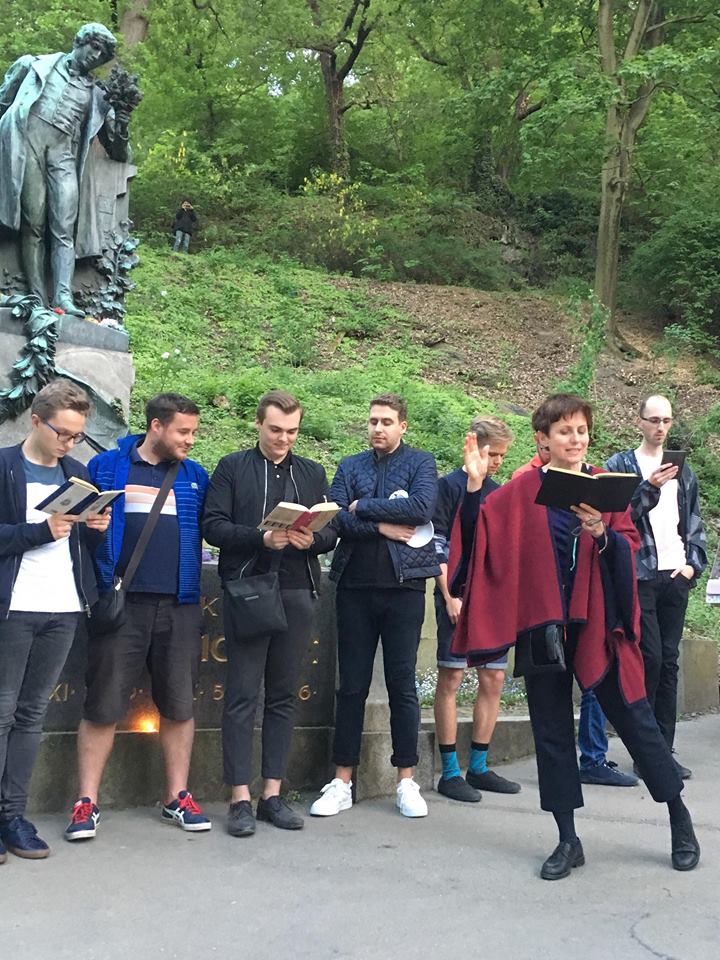The Long Journey of Mácha’s Máj
Why Czechs still like their very best poem
Silvie Lauder, Respekt magazine
The evening was not as late yet, the turtle dove was not calling meltingly and Karel Hynek Mácha probably looked different in real life from the way Josef Václav Myslbek portrayed him in his statue more than a century ago, with lilac in one hand and a quill pen in the other. But Alena Švejdová, who bites into a piece of hazelnut cake brought to Petřín by her daughter Amálie, shortly after 8pm on 1st May, does not mind any of that. An hour earlier, the Deputy Head at the English College in Prague, who also teaches Czech language and literature there, lit a candle by the Mácha memorial and opened a well-worn and densely underlined and referenced edition of Máj, his poem about the month of May, from 1935.
In the following minutes, Petřín was a witness to the sound of the sad story of Jarmila, Vilém and Hynek: quoted from various media ranging from Kindles to ancient editions from second hand book shops. The readings were done in a shy and silent way, as well as with full confidence and out loud. The poem was read by students who are preparing for the Maturita and are still searching for their own relationship with the poem, as well as by people who took the Maturita half a century ago and know some of the sections by heart to this day.
Mácha was not actually the reason why this tradition began. Mrs Švejdová started organising this gathering by the statue 23 years ago with the aim of showing students at the Křesťanské gymnázium, where she taught at the time, what a public ‘happening’ looks like. “I don’t even recall now how I came to choose Mácha”, she says. ”But it gradually grew and expanded. My current as well as former students and friends come here now. And we even involve random passers-by.” An example of a happening for educational purposes has therefore gradually become a social event and a celebration of Mácha’s work, although it does occasionally revert back to a happening. Last year, a group of naked ‘alternative reciters’, who quoted sections from Mácha’s scandalous diary, ‘disrupted’ the evening and then shouted “no love, just sex” and disappeared up Petřín.
Alena Švejdová is raising a new generation of Máj fans through this event. ”Reading this here is completely different from doing it at school, where we have to read it,” a group of students, who will take their Maturita next year, explained. In the autumn, the students will go through a detailed analysis of the text, word by word, together with their teacher, Mrs Švejdová. Students usually slightly prefer the 19th century Romantic poet Erben but many of them find their way to Mácha. ”It is a book that every Czech should read,” one of Mrs Švejdová’s current students, Adéla Tajovská, said. ”The story is wonderful and romantic in the original sense of the word and it celebrates the beauty of the Czech lands. And it is simply a tradition”.
This is a translation of part of Silvie Lauder’s article in Respekt. Ms Lauder has visited the school and has taken an active part in our annual school debates.
